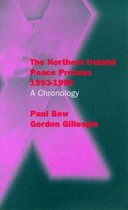Northern Ireland a Generation After Good Friday Lost Futures and New Horizons in the ‘Long Peace’
Afbeeldingen
Sla de afbeeldingen overArtikel vergelijken
- Engels
- Paperback
- 9781526139283
- 06 juli 2021
- 312 pagina's
Samenvatting
'At a time when the currents of politics are more unpredictable than ever, it is tempting to look for the historical tide flowing in a certain direction, allowing complex questions to be reduced to a simple answer. The authors resist that intellectual temptation. The book challenges some easy assumptions, questions some lazy ideas and provokes the reader into serious reflection about Northern Ireland’s present and future.'
Arthur Aughey, Emeritus Professor of Politics, Ulster University
'Timely and thoroughly researched, this book documents the remarkable changes in Northern Ireland society over the last two decades. […] This book should be indispensable reading for anyone who wants to understand the specificities of Northern Ireland within the intensifying debates over Irish unity, the break-up of the UK and the long-term ramifications of Brexit and the pandemic.'
Liam O’Dowd, Emeritus Professor of Sociology, Queen’s University Belfast
The Good Friday Agreement is widely celebrated as a political success story, one that has brought peace to a region that was once synonymous around the globe with political violence. The truth, as ever, is rather more complicated than that.
In many respects, the era of the peace process has seen Northern Irish society change almost beyond recognition. Those incidents of politically motivated violence that were once commonplace have become thankfully rare and a new generation has emerged whose identities and interests are rather more fluid and cosmopolitan than those of their predecessors. However, Northern Ireland continues to operate in the long shadow of its own turbulent past. Those who were victims of violence, as well as those who were its agents, have often been consigned to the margins of a society still struggling to cope with the traumas of the Troubles. Furthermore, the transition to ‘peace’ has revealed the existence of new, and not so new, forms of violence in Northern Irish society, directed towards women, ethnic minorities and the poor.
Northern Ireland a generation after Good Friday sets out to capture the complex, and often contradictory, realities that have emerged more than two decades on from the region’s vaunted peace deal. Across nine original essays, the authors offer a critical and comprehensive reading of a society that often appears to have left its violent past behind but at the same time remains subject to its gravitational pull.
The Good Friday Agreement is widely celebrated as a political success story, one that has brought peace to a region that was once synonymous around the globe with political violence. The truth, as ever, is rather more complicated than that.
In many respects, the era of the peace process has seen Northern Irish society change almost beyond recognition. Those incidents of politically motivated violence that were once commonplace have become thankfully rare and a new generation has emerged whose identities and interests are rather more fluid and cosmopolitan than those of their predecessors. However, Northern Ireland continues to operate in the long shadow of its own turbulent past. Those who were victims of violence, as well as those who were its agents, have often been consigned to the margins of a society still struggling to cope with the traumas of the Troubles. Furthermore, the transition to ‘peace’ has revealed the existence of new, and not so new, forms of violence in Northern Irish society, directed towards women, ethnic minorities and the poor.
Northern Ireland a generation after Good Friday sets out to capture the complex, and often contradictory, realities that have emerged more than two decades on from the region’s vaunted peace deal. Across nine original essays, the authors offer a critical and comprehensive reading of a society that often appears to have left its violent past behind but at the same time remains subject to its gravitational pull.
Productspecificaties
Inhoud
- Taal
- en
- Bindwijze
- Paperback
- Oorspronkelijke releasedatum
- 06 juli 2021
- Aantal pagina's
- 312
- Illustraties
- Nee
Betrokkenen
- Hoofdauteur
- Colin Coulter
- Tweede Auteur
- Niall Gilmartin
- Co Auteur
- Katy Hayward
- Hoofduitgeverij
- Manchester University Press
Overige kenmerken
- Extra groot lettertype
- Nee
- Product breedte
- 156 mm
- Product hoogte
- 17 mm
- Product lengte
- 234 mm
- Studieboek
- Nee
- Verpakking breedte
- 156 mm
- Verpakking hoogte
- 17 mm
- Verpakking lengte
- 234 mm
- Verpakkingsgewicht
- 0 g
EAN
- EAN
- 9781526139283
Kies gewenste uitvoering
Prijsinformatie en bestellen
De prijs van dit product is 25 euro en 99 cent.- Prijs inclusief verzendkosten, verstuurd door bol
- Ophalen bij een bol afhaalpunt mogelijk
- 30 dagen bedenktijd en gratis retourneren
- Dag en nacht klantenservice
Rapporteer dit artikel
Je wilt melding doen van illegale inhoud over dit artikel:
- Ik wil melding doen als klant
- Ik wil melding doen als autoriteit of trusted flagger
- Ik wil melding doen als partner
- Ik wil melding doen als merkhouder
Geen klant, autoriteit, trusted flagger, merkhouder of partner? Gebruik dan onderstaande link om melding te doen.








